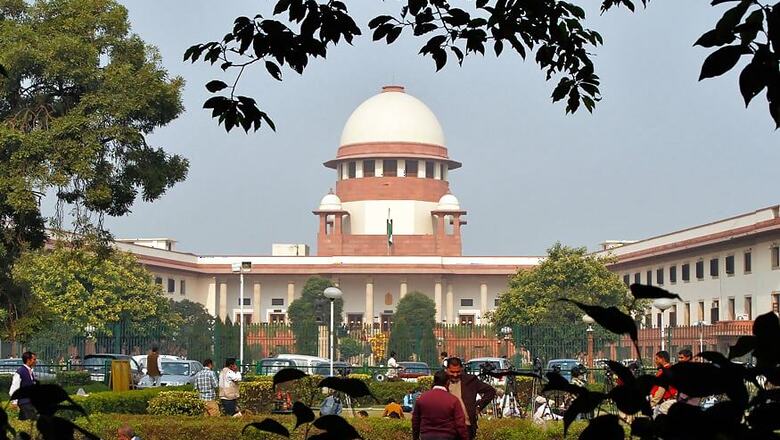
views
New Delhi: Ending a 17 month impasse between the judiciary and the Centre, the Supreme Court bench led by Chief Justice of India, J.S. Khehar on Monday stated that the Memorandum of Procedure (MoP) for the selection of judges have been cleared by SC and has now been forwarded to be studied by the Centre.
Attorney General Mukul Rohatgi informed the press that the Collegium had sent the finalized MoP to the Centre on March 14 for studying it.
It was in October, 2015, that the apex court while striking down the National Judicial Appointments Commission (NJAC) upheld the Collegium system of appointment of judges but stated that the MoP needs changes in order to meet the demands of transparency.
In the past several months, the clause of “National Security” had continued to be a bone of contention between the judiciary and executive. But now there has been a consensus that “national security” will be a part in appointing the judges when SC conceded to the Centre’s demand.
This ‘national security’ clause gives a veto right to the government to reject a name recommended by the Collegium. Former CJI TS Thakur had said that this particular clause was vague and needs to be narrowly defined.
Even the issue of whether an independent secretariat on judicial appointments must be set up in high courts and the apex court to maintain databases on judges and assist the Collegium was pending, but now SC has dropped this reservation as well.
The apex court Collegium consists of the court’s five senior-most judges—Chief Justice J.S. Khehar, justices Dipak Misra, J. Chelameshwar, Ranjan Gogoi and Madan B. Lokur.
Today the court disposed off the petition on judicial appointments who stated that despite the order of the Collegium several months ago, several judges of the High Court and Chief Justices have not been transferred and nearly 500 appointments to HCs were pending.
The SC bench led by CJI said that “How can you ask for increasing no of seats for judges when we cannot fill the existing number of judges? But there is no disputing the fact that there is large number of vacancies. In so far as district court is concerned, order has already been passed to fill the vacancies and to increase the number of judges.”
Recently, Dushyant Dave, a senior advocate and the former president of the Supreme Court Bar Association, expressed concern on the way MoP has turned out with Collegium giving up on almost all its prior reservations it had with the Centre.



















Comments
0 comment